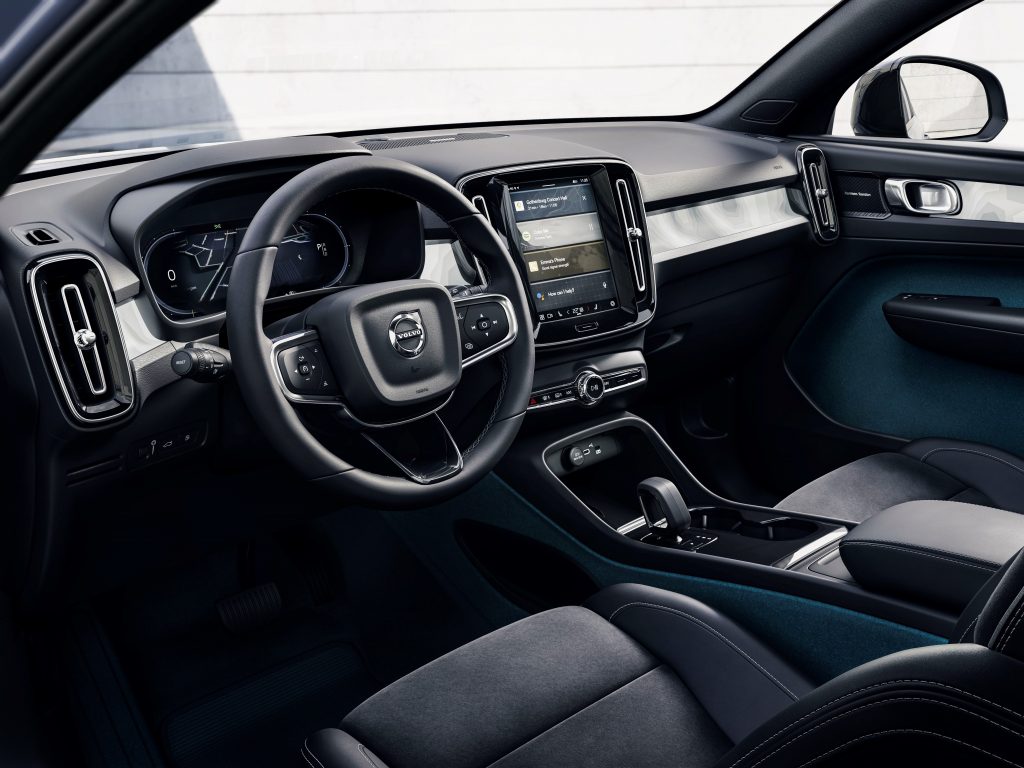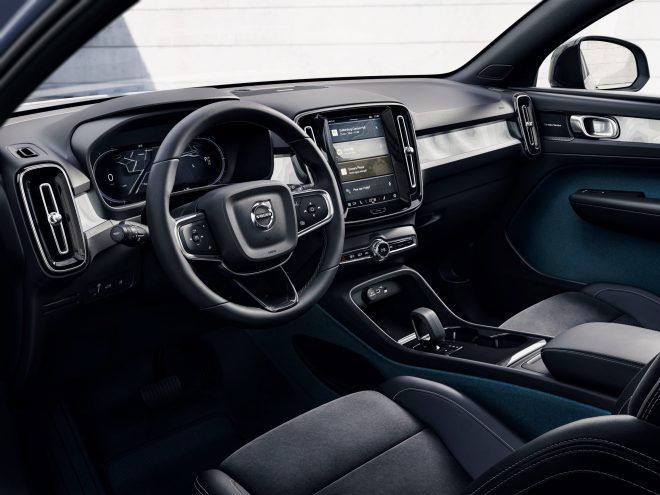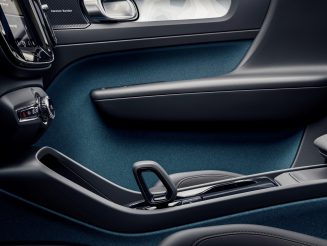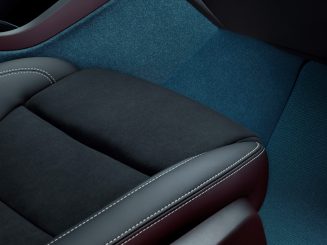Volvo Cars has announced that it will be taking an ethical stand for animal welfare in its electric vehicles. On September 23rd, the Swedish automaker officially announced that every new fully-electric Volvo model will come with a completely leather-free interior, starting with the C40 Recharge.
In 2030, when Volvo’s entire fleet transitions to electric-only powertrains, every vehicle the automaker builds will be fitted with leather-free interiors for sustainability and animal welfare purposes. Currently, Volvo says it is “working actively to find high-quality and sustainable sources for many materials currently used in the wider car industry.” It has not yet found a supplier to handle its vegan interiors.
By 2025, Volvo says that it aims to have one-fourth of the materials found in new vehicles to consist of recycled and bio-based content. This is a part of the automaker’s plan to become a fully circular business by 2040. Additionally, the company says that its climate action plans will allow Volvo to “aim for all its immediate suppliers, including material suppliers, to use 100 per cent renewable energy by 2025.”
Its primary focus for transitioning to cruelty-free interiors was based on the company’s concern of the negative environmental impacts of cattle farming and deforestation. “Livestock is estimated to be responsible for around 14% of global greenhouse gas emissions from human activity, with the majority coming from cattle farming,” Volvo said in a press release. It will no longer offer leather interior options, and Volvo will offer customers comparable alternatives like high-quality sustainable materials made from bio-based and recycled sources.
“Being a progressive car maker means we need to address all areas of sustainability, not just CO2 emissions,” Director of Global Sustainability at Volvo Cars, Stuart Templar, said. “Responsible sourcing is an important part of that work, including respect for animal welfare. Going leather-free inside our pure electric cars is a good next step towards addressing this issue.”
Volvo will also look to reduce the use of plastics, rubber, lubricants, and adhesives to further subtract its footprint that requires livestock manipulation. “The company takes this step because it believes that while going leather-free is a step in the right direction, doing so alone does not make a car interior vegan,” the company added.
Volvo is effectively following in the footsteps of automakers like Tesla, which adopted vegan interiors in mid-2017. CEO Elon Musk confirmed in 2016 that Tesla would transition to animal-free interiors, making the company’s vehicles more sustainable than previously established.
Don’t hesitate to contact us with tips! Email us at [email protected], or you can email me directly at [email protected].





where to buy ivermectin for humans – buy cheap generic candesartan tegretol 200mg pill
accutane 10mg drug – linezolid usa order zyvox 600mg generic
amoxil price – ipratropium pills combivent 100mcg pills
where to buy azithromycin without a prescription – oral tindamax 500mg nebivolol medication
buy gabapentin without prescription – buy anafranil 50mg sale order itraconazole generic
furosemide pills – piracetam 800 mg over the counter buy generic betamethasone over the counter
amoxiclav drug – purchase duloxetine pills cymbalta 40mg oral
amoxiclav generic – buy augmentin online cymbalta 40mg usa
buy semaglutide medication – periactin pills cyproheptadine 4 mg pills
order generic tizanidine – purchase plaquenil pill microzide 25mg without prescription
oral tadalafil 20mg – tadalafil 5mg generic oral viagra 50mg
sildenafil 100mg over the counter – buy cialis 5mg without prescription order tadalafil 10mg for sale
order cenforce – cenforce over the counter order glucophage 500mg online cheap
omeprazole for sale online – buy lopressor 50mg pill cheap atenolol 100mg
medrol generic name – aristocort brand buy aristocort 10mg without prescription
how to buy misoprostol – cytotec sale how to buy diltiazem
purchase zovirax pill – buy allopurinol sale cheap rosuvastatin 20mg
order motilium online cheap – buy motilium 10mg generic buy flexeril 15mg pills
inderal 20mg canada – buy inderal 20mg sale order methotrexate 5mg sale
warfarin drug – brand losartan 25mg order hyzaar online cheap
levaquin 250mg pill – order dutasteride without prescription zantac order online
buy generic meloxicam – flomax online buy tamsulosin 0.4mg sale
ondansetron 8mg pill – order zofran 8mg without prescription simvastatin 20mg price
generic provigil order provigil 200mg provigil pills buy modafinil online provigil canada order modafinil 100mg pill provigil 100mg cost
Thanks for putting this up. It’s understandably done.
I’ll certainly bring to review more.
buy zithromax online – buy generic ciplox purchase metronidazole without prescription
order rybelsus generic – buy periactin generic buy periactin medication
domperidone uk – buy flexeril pills for sale cyclobenzaprine canada